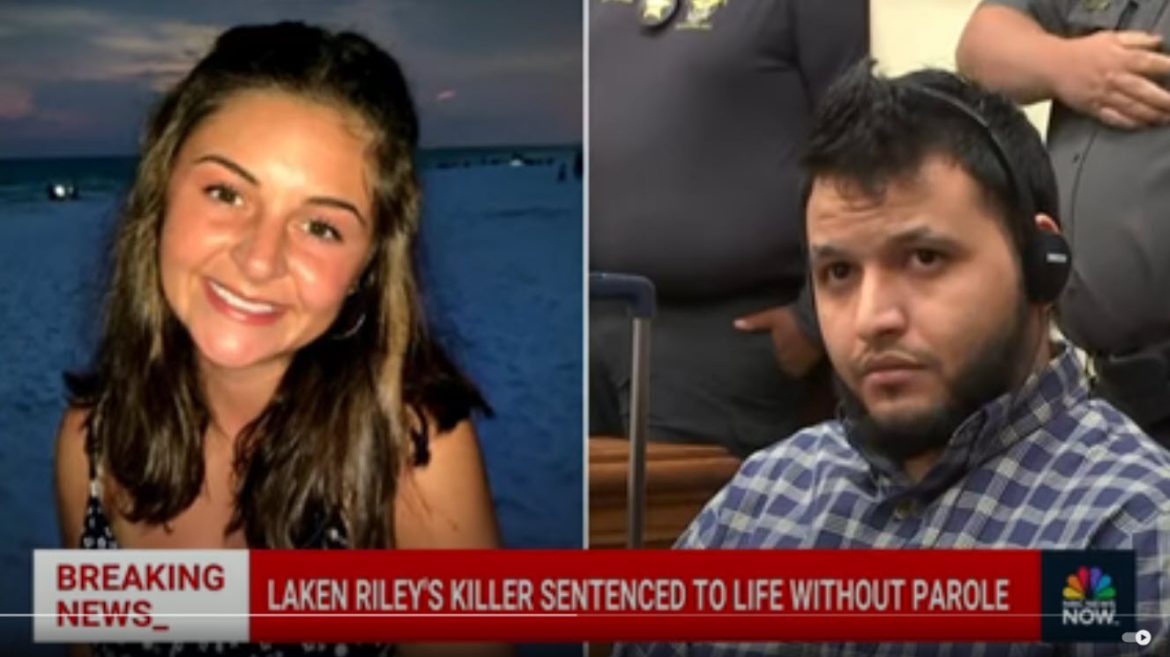Jose Ibarra, the undocumented immigrant convicted of murdering Georgia nursing student Laken Riley, is sentenced to life without parole after being found guilty on all ten counts. The sentencing, handed down by a judge after Ibarra waived his right to a jury trial, marks the conclusion of a high-profile case that captured national attention and became a flashpoint in immigration and crime debates during the presidential election.
Laken Riley, a 22-year-old nursing student at the University of Georgia, was brutally murdered in 2023. Her death sent shockwaves through her community and sparked widespread outrage across the nation. Prosecutors say Ibarra stalked and attacked Riley near her apartment complex in Athens, resulting in her death.
Judge Delivers Stern Sentence
During the sentencing, the judge described the crime as “vicious and senseless” and emphasized the profound loss felt by Riley’s family and community. “Laken Riley had a bright future ahead of her, and that was stolen in an act of unthinkable cruelty,” the judge stated.
Ibarra, who remained stoic throughout the proceedings, declined to make a statement.
National Attention and Political Implications
The case drew national attention due to Ibarra’s immigration status, reigniting debates over immigration policy and enforcement. Riley’s murder became a rallying point for proponents of stricter immigration laws, with Republican candidates citing the case as evidence of the need for tighter border security.
Former President Donald Trump mentioned Riley’s case during campaign rallies, saying, “This young woman’s tragic death is another preventable loss caused by weak borders and failed immigration policies.”
Democratic candidates, while condemning the murder, caution against using the case to generalize about undocumented immigrants. They argue that comprehensive immigration reform is needed to address systemic issues.
Family Seeks Justice and Change
Riley’s family members, who were present at the sentencing, express both grief and relief at the verdict. “Nothing will bring Laken back, but we are grateful that justice has been served,” says her mother, Sarah Riley.
The family has since established a foundation in Laken’s honor to support victims of violent crimes and advocate for campus safety measures.
Broader Implications
The case has led to renewed calls for enhanced safety protocols at college campuses across the country. The University of Georgia has implemented additional security measures, including improved lighting and increased patrols around campus housing.
Immigration reform advocates on both sides of the aisle point to the case as a pivotal moment in ongoing debates about how to address undocumented immigration and violent crime.
As Ibarra begins his life sentence without the possibility of parole, the case continues to resonate far beyond Athens, underscoring the complexities of justice, immigration, and public safety in America.



